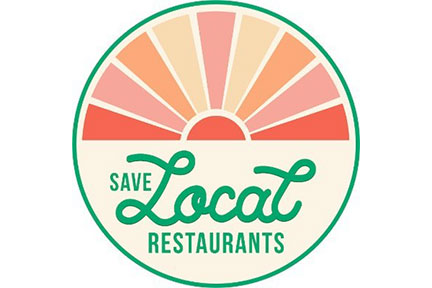SACRAMENTO – Today, the Sacramento Superior Court issued a temporary hold on AB 257, the FAST Act, which prevents the law from being implemented until the Court has a chance to decide the merits of the case. A hearing is scheduled for January 13, 2023. This pause comes on the heels of a Save Local Restaurants coalition lawsuit against state officials following a declaration that they would move forward with the law despite more than one million California voters demanding a say on its implementation.
The Save Local Restaurants coalition released the following statement in response to this decision:
“Above all, today’s decision by the Sacramento Superior Court protects the voices of over one million California voters who exercised their democratic right in asking to vote on a piece of legislation before bearing its burden. This process has been preserved for more than 100 years and was in grave risk of being suppressed. While this pause is temporary, the impact is beyond just one piece of legislation and keeps intact for the time being California’s century-old referendum process.”
Read the full court order HERE.
Additional Information:
On December 5, the Save Local Restaurants coalition announced it submitted to county elections officials over one million signatures from Californians in order to prevent AB 257 from taking effect until voters have their say on the November 2024 ballot.
The Secretary of State issued a notice on December 9, 2022, stating the referendum petition filed against AB 257 contains more than the minimum number of required signatures.
Pursuant to Article II of the California Constitution, and consistent with the position taken by the Secretary of State and Attorney General in 2020, AB 257 became ineffective and unenforceable in its entirety as of this date. This includes, but is not limited to, the establishment of the Fast Food Council. Given the refusal by California’s Department of Industrial Relations to commit to upholding this law, the Save Local Restaurants coalition filed a lawsuit against the state officials responsible for overseeing enforcement of AB 257.
Editors Note:
- AB 257, the Fast Food Accountability and Standards Recovery Act by Assemblymember Chris Holden (D-Pasadena), authorizes the creation of the Fast Food Council comprised of representatives from labor and management to set minimum standards for workers in the industry, including for wages, conditions related to health and safety, security in the workplace, the right to take time off from work for protected purposes and protection from discrimination and harassment.
- For full text of the bill, visit: http://leginfo.legislature.ca.gov
August 31, 2022
Elected leaders could help all restaurant workers by learning from California’s mistakes
As President of McDonald’s USA, it may come as a surprise to hear that I support raising minimum wages for workers. In fact, I welcome legislation that increases wages for all workers.
I also welcome a dialogue on legislation requiring mandatory training around safe, inclusive and respectful workplaces – something already underway at every McDonald’s worldwide.
When done thoughtfully, fairly and applied across an even playing field, this kind of legislation can be highly effective.
But California’s state legislators have just passed a bill called AB 257, which is now flying to Governor Newsom’s desk, and will do the exact opposite.
Its proponents say their bill should be a model for other states (and special interest groups are directing money to make this a reality). This should raise alarm bells across the country.
That’s because California’s approach targets some workplaces and not others. It imposes higher costs on one type of restaurant, while sparing another. That’s true even if those two restaurants have the same revenues and the same number of employees.
Let me explain how. If you are a small business owner running two restaurants that are part of a national chain, like McDonald’s, you can be targeted by the bill. But if you own 20 restaurants that are not part of a large chain, the bill does not apply to you. For unexplainable reasons, brands with fewer than 100 locations are excluded. Even more mystifying, the legislation excludes certain restaurants that bake bread. I can only conclude this is the outcome of backroom politicking.
This is a clear example of picking “winners” and “losers,” which is not the appropriate role of government.
Putting aside so many problems with the bill, it could require single-location franchise owners of these large chain restaurants to pay workers $22 per hour by as early as 2023—40% more than the current hourly wage in California.
Aggressive wage increases are not bad. McDonald’s, for instance, operates very successfully in high wage environments across the country and around the world, and in places that require more than $22 in all restaurants.
But if it’s essential to increase restaurant workers’ wages and protect their welfare – and it is – shouldn’t all restaurant workers benefit?
This lopsided, hypocritical and ill-considered legislation hurts everyone. Many economists who have studied this issue agree this bill is problematic, as has the state’s own Department of Finance.1
Economists say it could drive up the cost of eating at a quick service restaurant in California by 20% at a time when Americans already face soaring costs in supermarkets and at gas pumps.
California is my birth state and it’s hard to watch it earn its reputation for driving businesses out of the state.
But this isn’t just a cautionary tale for California’s customers, workers, and business owners. Proponents of this bill have made it clear they want to see it expand across the country, regardless of whether Governor Newsom signs the bill into law. That would be terrible.
They are also encouraging voters everywhere to ask their lawmakers to adopt California’s counterproductive model in their own states.
Rather than asking for what many have decried as the “California Food Tax,”those who count on a thriving restaurant industry—workers, owners and customers— should be asking lawmakers to only consider legislation that benefits all.
Once again, California is not leading the way. We should all demand better and I welcome a productive dialogue with elected leaders across the country.
Joe Erlinger President, McDonald’s USA
1 https://esd.dof.ca.gov/LegAnalysis/getPdf/066D8BA5-C012-ED11-913B-00505685B5D1

